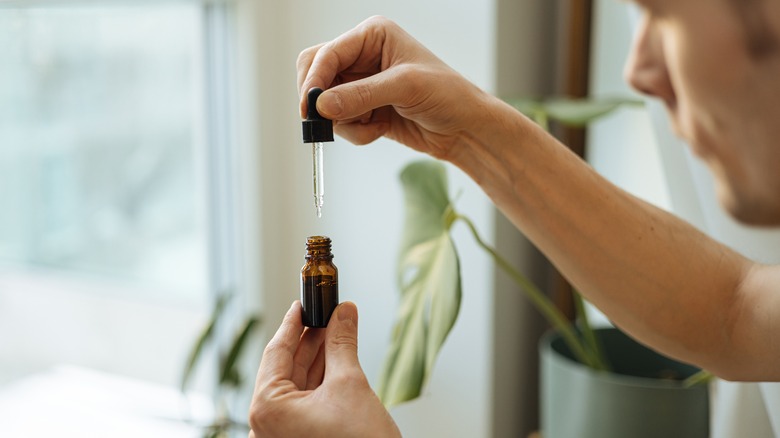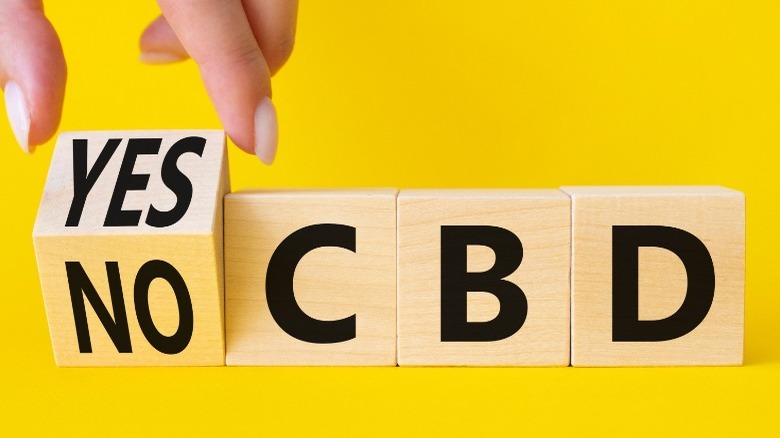Does CBD Actually Reduce The Euphoric Or Unpleasant Feelings Of Cannabis?
If you have been looking for a natural remedy to relieve pain, anxiety, poor sleep, or even just want to boost your general health and wellness, then you may have come across cannabis as a potential solution at some point. According to the National Center for Complementary and Integrative Health, cannabis is an umbrella term that refers to the harvested materials and products of the cannabis plant. The cannabis plant contains over 100 chemical compounds known as cannabinoids. You may be familiar with the two most well-studied cannabinoids: tetrahydrocannabinol (THC) and cannabidiol (CBD).
Healthline notes that while both THC and CBD may have health benefits, they could have some different therapeutic and psychological effects. For example, THC consumption may help with low appetite and muscle spasticity, while CBD consumption may help with depression, seizures, and psychosis. Notably, both THC and CBD have been explored for treating anxiety, nausea, and pain. THC is associated with the euphoric high that results from its psychoactive properties, while CBD is not. In fact, it is thought that CBD may help ease the high from THC and any unpleasant feelings that accompany it (via Medical News Today). However, a new study calls into question CBD's effects on the euphoric or unpleasant feelings of cannabis. Here's everything you need to know.
Mixed evidence on CBD
A 2022 study published in Nature's journal of Neuropsychopharmacology studied the short-term effects of CBD on THC when inhaled at CBD:THC ratios that are commonly found in medicinal and everyday cannabis. The different ratios mixed 10 milligrams of THC with either 0 milligrams CBD (0:1 CBD:THC), 10 milligrams CBD (1:1 CBD:THC), 20 milligrams CBD (2:1 CBD:THC), or 30 milligrams CBD (3:1 CBD:THC). The researchers concluded that CBD did not alter any of the euphoric or unpleasant effects of THC. Healthline notes that the other main finding of the study was that participants experienced more coughing when they inhaled cannabis with higher CBD:THC ratios.
Another 2022 study published in the journal of Psychopharmacology found that inhaling a 1:1 CBD:THC ratio resulted in much lower self-rated anxiety when compared to THC alone. This finding was only for those with a low baseline measure of anxiety. When it comes to CBD's protective effects against the adverse experiences of the THC high, there's plenty of mixed evidence. However, Dr. Ethan Russo — who published a 2006 study in the journal Medical Hypotheses that identified the potential for CBD to mitigate the unwanted effects of THC when the two are combined together — notes that CBD can affect people differently (via Weed Maps). For example, while high doses of CBD have been shown to help reduce some of THC's high in some experienced cannabis users, lesser doses of CBD can also increase those feelings for inexperienced users.


